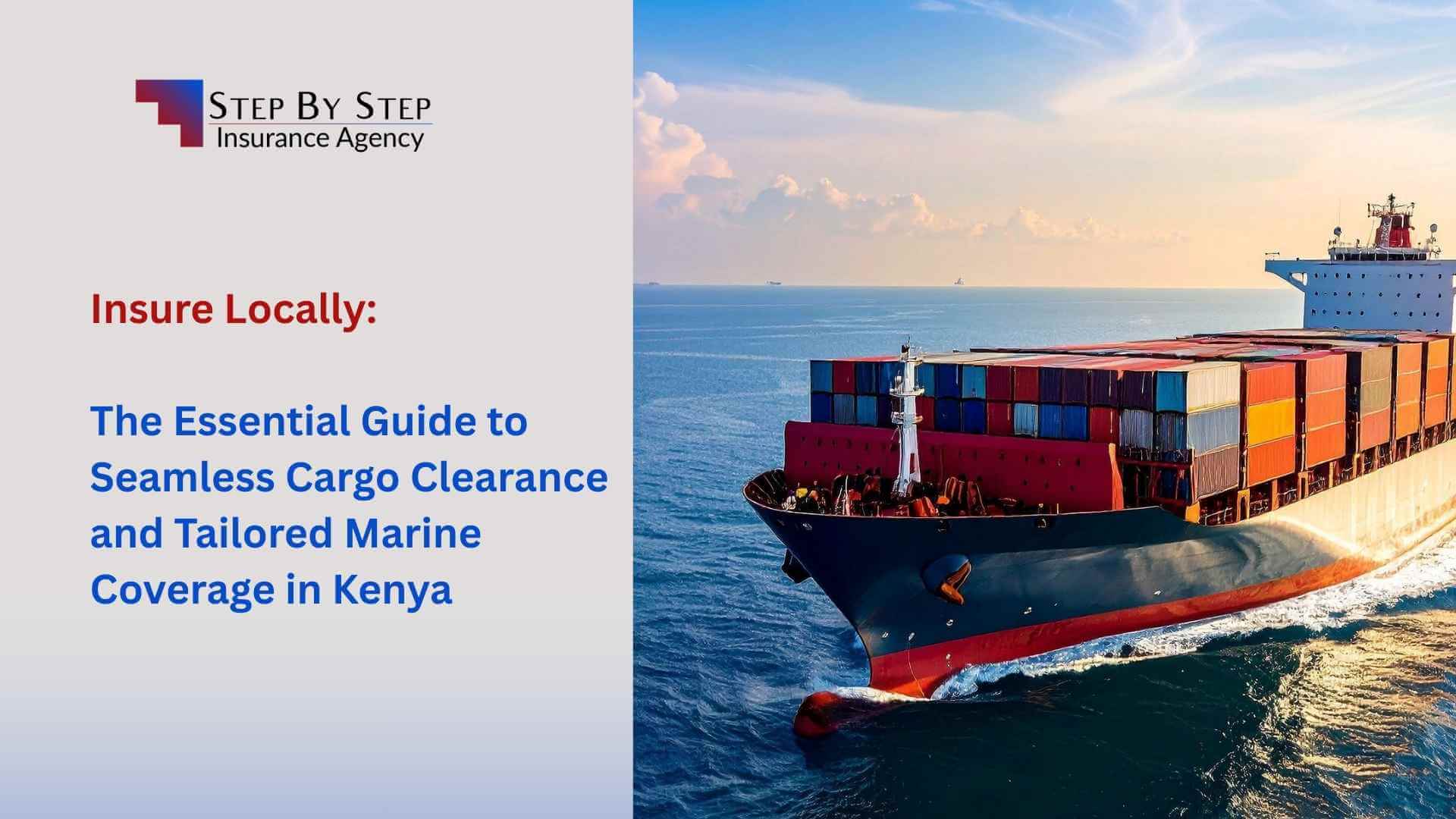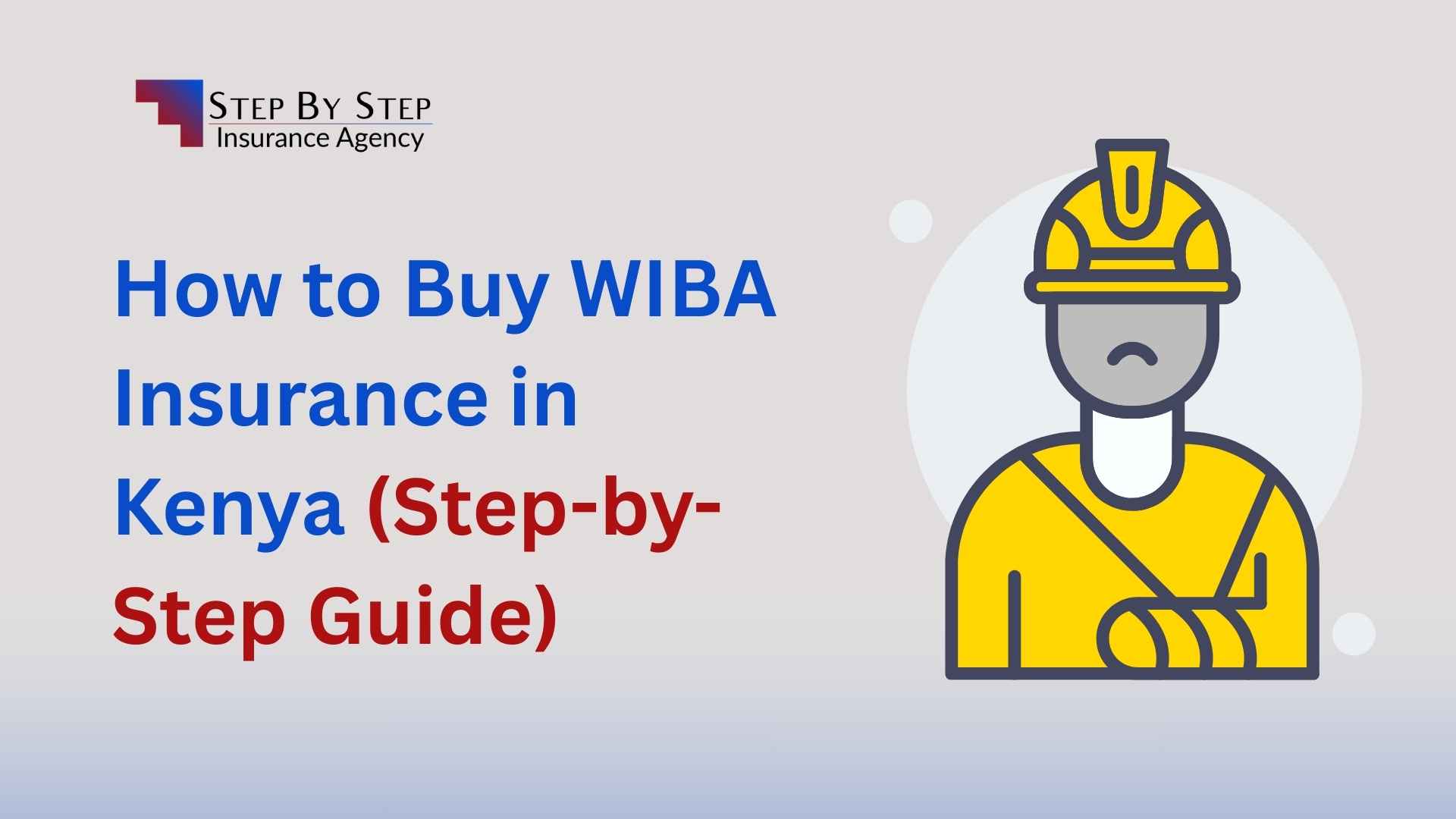Insure Locally: The Essential Guide to Seamless Cargo Clearance and Tailored Marine Coverage in Kenya
Navigating international trade requires precision, but recent regulatory changes in Kenya have introduced a mandatory component that no importer can afford to overlook. Securing Marine Cargo Insurance in Kenya locally is no longer optional—it is a definitive requirement for smooth customs processing. This article, brought to you by Step by Step Insurance Agency, positions you for success by detailing these critical mandates, explaining the complex world of marine risk, and demonstrating how expert guidance leads to the most secure and tailored insurance solution for your unique business needs.
Key Takeaways for Importers
Compliance with the mandate requiring local Marine Cargo Insurance in Kenya is essential for all imports, effective February 14, 2025, as cargo cannot be cleared without digital proof of local cover.
By partnering with experts who understand the nuances of the market and leverage top underwriters, you secure a tailored insurance solution that protects your assets against specific risks while ensuring rapid, compliant customs clearance.
Table of Contents
- Introduction: The New Reality for Kenyan Importers
- The Mandatory Requirement: Localizing Marine Cargo Insurance
- The Step-by-Step Importation and Insurance Process
- What You Are Covering: Understanding Marine Risks
- Achieving Personalized Coverage: ICC and Valuation
- Defining Responsibility Through Incoterms
- The Strategic Advantages of Insuring Locally
- Step by Step Insurance Agency: Your Partner for Tailored Insurance Solutions
- Take the Step Today: Ensure Compliance and Protection
Join Our Insurance Community
Connect with fellow professionals and stay updated on the latest insurance trends, news, and insights in Kenya.
I. Introduction: The New Reality for Kenyan Importers
Marine insurance is the oldest form of insurance in the world. Under the Marine Insurance Act 1906 (MIA 1906), it is defined as a contract where the insurer indemnifies the insured against losses incident to a Marine Adventure.
While the term “marine” suggests ocean travel, marine risk applies broadly to activities related to the movement of goods and people and includes:
- Sea and inland waterways
- Rail
- Air
Insurance remains a cornerstone of commerce: it provides stability, peace of mind, and is often required by lenders. Critically, it is now a firm legal requirement in Kenya.
II. The Mandatory Requirement: Localizing Marine Cargo Insurance
For years, Kenyan importers often purchased marine coverage from foreign markets. Today, legislation compels localization to build local capacity and retain premiums within Kenya.
Legal Framework and Enforcement
The mandate is grounded in:
- Section 20 of the Insurance Act (Cap 487) – Prohibits placing “Kenya business” with non-registered insurers without written approval.
- Section 16A of the Marine Insurance Act (Cap 390) – Makes it compulsory to place marine cargo insurance with a locally registered insurer unless exempted by the regulator.
Though announced earlier, strict enforcement began on February 14, 2025.
The Digital Clearance Imperative
You cannot clear cargo unless it is locally insured.
Compliance is fully digital:
- Marine insurance must appear digitally on the IRA and ICMS portals.
- Insurers must issue certificates through the AKI DMVIC platform, which syncs with ICMS.
- Physical certificates alone are not sufficient.
III. The Step-by-Step Importation and Insurance Process
Marine Cargo Insurance is now a mandatory checkpoint in the standard importation journey.
The Standard Importation Journey
- Obtain a proforma invoice.
- Lodge an Import Declaration Form (IDF) with KRA → Receive UCR.
- Complete entry declaration and pay taxes.
- Proceed to clearance and release — this now requires local Marine Cargo Insurance.
Securing Your Digital Local Marine Certificate
When you engage Step by Step Insurance Agency:
- Document Compilation: Clearing agent prepares:
- Proforma/commercial invoice
- IDF copy
- Bill of Lading
- Packing list
- Premium Advice: Insurance intermediary reviews and advises payable premium.
- Certificate Processing: Insurer enters cargo details into AKI DMVIC platform and issues a unique certificate per consignment.
- Digital Verification: The approved certificate reflects automatically on ICMS, enabling seamless clearance.
IV. What You Are Covering: Understanding Marine Risks
A tailored insurance solution starts with understanding your cargo and the risks.
Cargo Definition and Classification
Cargo includes anything imported or exported — machinery, vehicles, furniture, oil, building materials, etc.
| Cargo Types | Classification | Examples |
|---|---|---|
| Packed General Cargo | Bags, barrels, drums, pallets, boxes, crates | Consumer goods, electronics, textiles |
| Neo Bulk Cargo | Lumber, paper, steel, cars, trucks | Vehicles, construction materials |
| Liquid Bulk Cargo | Petroleum, chemicals, wine, juice | Oil, chemicals, beverages |
| Dry Bulk Cargo | Grain, cement, coal, iron ore | Agricultural products, minerals |
Marine Risks and Perils
Common risks include:
- Sea voyage risks: storms, fire, sinking, collision, jettison
- Handling risks: poor loading/offloading
- Port/CFS risks: rain, theft, pilferage
- Inland transit risks: theft, accidents
- Claims examples: contamination, damage, short-landing, General Average, salvage charges
V. Achieving Personalized Coverage: ICC and Valuation
Coverage depends on the Institute Cargo Clauses (ICC) and valuation, ensuring you pay for exactly what you need.
Institute Cargo Clauses (Scope of Cover)
- ICC (A) / ICC (Air) – All Risks cover (broadest protection). Excludes: willful misconduct, wear and tear, inherent vice, insufficient packing.
- ICC (B) – Medium coverage with specified risks (fire, explosion, sinking, overturning, etc.)
- ICC (C) – Limited named peril cover.
Additional optional covers:
- War
- Strikes, Riots, and Civil Commotions (SRCC)
Basis of Valuation
Sum insured typically = Invoice Value + Freight + 10%
This covers incidental expenses and expected profit in total loss scenarios.
VI. Defining Responsibility Through Incoterms
Incoterms determine who bears risk and who must insure.
| Incoterm | Seller’s Obligation | Buyer’s Obligation (Insurance Focus) |
|---|---|---|
| EXW | Goods at seller’s premises | Buyer insures entire journey |
| FOB | Delivers goods onto vessel | Buyer insures after ship’s rail |
| CIF | Seller pays freight + insurance | Buyer insures beyond destination port |
| DDP | Seller handles everything incl. insurance | Minimal buyer responsibility |
VII. The Strategic Advantages of Insuring Locally
- Tailor-Made Cover: Local insurers can customize to your routes and cargo.
- Easy Claims Access: Local claim teams → faster resolution.
- Clarity: Policies written in clear, accessible language.
- Economic Impact: Supports Kenya’s insurance industry and retains premiums locally.
VIII. Step by Step Insurance Agency: Your Partner for Tailored Insurance Solutions
We ensure full digital compliance so your shipments are protected and cleared without delays.
Why choose us:
- Full guidance through every importation step
- Accurate documentation for IRA & ICMS verification
- Tailored solutions based on cargo, Incoterms, and voyage
- Partnerships with Kenya’s top underwriters for the best rates and capacity
Our commitment: Deliver the most effective and compliant Marine Cargo Insurance in Kenya.
IX. Take the Step Today: Ensure Compliance and Protection
Avoid delays, fines, or seizure at the port. Secure the mandatory local Marine Cargo Insurance in Kenya through a trusted expert.
Contact Us for Immediate Marine Cargo Insurance Solutions
| Action | Contact Detail |
|---|---|
| Request a Consultation | https://stepbystepinsurance.co.ke/contact/ |
| Call | +254 (0) 729 712 200 |
| Call | +254 (0) 716 534 192 |
| 0722 888 350 | |
| Get Quote | https://stepbystepinsurance.co.ke/get-a-quote/ |






